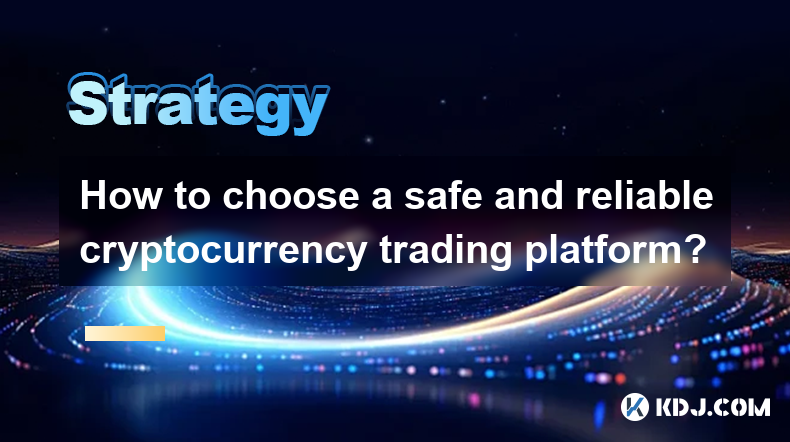-
 Bitcoin
Bitcoin $83,957.5850
-5.35% -
 Ethereum
Ethereum $2,326.1467
-6.70% -
 Tether USDt
Tether USDt $0.9985
-0.04% -
 XRP
XRP $2.1900
-5.64% -
 BNB
BNB $610.5855
-2.00% -
 Solana
Solana $134.6534
-6.56% -
 USDC
USDC $0.9998
0.00% -
 Dogecoin
Dogecoin $0.2026
-4.07% -
 Cardano
Cardano $0.6449
-5.52% -
 TRON
TRON $0.2268
-1.86% -
 Chainlink
Chainlink $15.1993
-0.67% -
 Litecoin
Litecoin $124.3319
8.45% -
 Avalanche
Avalanche $21.7601
-0.80% -
 Sui
Sui $2.8656
-3.03% -
 Stellar
Stellar $0.2853
-3.40% -
 Toncoin
Toncoin $3.4966
-1.47% -
 Shiba Inu
Shiba Inu $0.0...01436
1.98% -
 UNUS SED LEO
UNUS SED LEO $9.0635
1.32% -
 Hedera
Hedera $0.1954
-1.26% -
 Polkadot
Polkadot $4.7367
2.29% -
 MANTRA
MANTRA $7.0758
-8.67% -
 Hyperliquid
Hyperliquid $19.4882
-3.89% -
 Ethena USDe
Ethena USDe $0.9988
-0.04% -
 Bitcoin Cash
Bitcoin Cash $293.4387
0.61% -
 Dai
Dai $0.9994
-0.02% -
 Bitget Token
Bitget Token $3.9701
-7.81% -
 Uniswap
Uniswap $7.8660
-5.51% -
 Monero
Monero $213.2577
-1.36% -
 NEAR Protocol
NEAR Protocol $3.0058
0.05% -
 Pepe
Pepe $0.0...08289
0.56%
What are the fundamentals of Ethereum?
Ethereum's smart contracts eliminate intermediaries and transaction costs, streamlining processes across industries.
Feb 27, 2025 at 05:42 am

Key Points
- Ethereum is a decentralized, open-source blockchain platform that enables the development and execution of smart contracts.
- Smart contracts are autonomous, programmable contracts that automatically execute when pre-defined conditions are met, eliminating the need for intermediaries and reducing transaction costs.
- Ethereum's native cryptocurrency, Ether (ETH), serves as a unit of account and a means of paying for transaction fees and executing smart contracts on the platform.
- The Ethereum Virtual Machine (EVM) is a runtime environment that executes smart contracts in an isolated, tamper-proof manner, ensuring their integrity and security.
- The Proof-of-Work (PoW) consensus mechanism employed by Ethereum ensures the network's security by rewarding miners for validating transactions and adding new blocks to the blockchain.
Fundamentals of Ethereum
1. Decentralization
Ethereum is a decentralized network, meaning it is not controlled by any single entity. Instead, the network is maintained by a distributed network of nodes, each of which stores a copy of the blockchain and participates in the consensus process. This decentralization makes Ethereum resistant to censorship, manipulation, and downtime.
2. Open Source
Ethereum's code is open source, which means anyone can view, modify, and contribute to it. This transparency allows developers to build applications on the platform with confidence, knowing that the code is publicly available and can be audited for security.
3. Smart Contracts
Smart contracts are one of Ethereum's key features. These self-executing contracts allow developers to automate agreements and enforce their terms without the need for intermediaries. This has opened up new possibilities for applications in various industries, including finance, logistics, healthcare, and more.
4. Ether (ETH)
Ether is the native cryptocurrency of the Ethereum network. It is used to pay for transaction fees and execute smart contracts on the platform. Ether is also tradable on cryptocurrency exchanges, allowing holders to speculate on its value.
5. Ethereum Virtual Machine (EVM)
The Ethereum Virtual Machine (EVM) is a software platform that executes smart contracts on the Ethereum network. It provides a secure and isolated environment for smart contracts to run, ensuring their integrity and preventing malicious code from affecting the network.
6. Proof-of-Work (PoW) Consensus
Ethereum currently uses the Proof-of-Work (PoW) consensus mechanism to secure the network. In PoW, miners compete to solve complex mathematical problems to validate blocks of transactions. The successful miner is rewarded in Ether for their efforts, while invalid blocks are rejected by the network.
FAQs
- What is the difference between Bitcoin and Ethereum?
Bitcoin is a digital currency primarily used as a store of value, while Ethereum is a blockchain platform that enables the development and execution of smart contracts.
- Why is Ethereum valuable?
Ethereum's value stems from its ability to host smart contracts, which facilitate the development of decentralized applications and automate processes across various industries.
- What is the future of Ethereum?
Ethereum is continuously evolving, with upgrades and advancements planned for the future. The network is expected to transition to a Proof-of-Stake (PoS) consensus mechanism, which will improve its scalability and energy efficiency.
- How can I buy Ethereum?
Ethereum can be purchased on cryptocurrency exchanges like Binance, Coinbase, and Kraken. You can use fiat currencies like USD or EUR to make your purchase.
- How can I store Ethereum?
Ethereum can be stored in a variety of cryptocurrency wallets, including software wallets, hardware wallets, and exchange-based wallets. The choice of wallet depends on your security preferences and needs.
Disclaimer:info@kdj.com
The information provided is not trading advice. kdj.com does not assume any responsibility for any investments made based on the information provided in this article. Cryptocurrencies are highly volatile and it is highly recommended that you invest with caution after thorough research!
If you believe that the content used on this website infringes your copyright, please contact us immediately (info@kdj.com) and we will delete it promptly.
- ADA's Price Action Has Been Anything But Stable, with the Token Going Through Multiple Waves of Volatility
- 2025-02-27 07:10:31
- Coldware (COLD) Emerges as the Top DePIN Presale, Outperforming Avalanche (AVAX) and Binance (BNB)
- 2025-02-27 07:05:31
- The stock of the company now known as Strategy (MSTR) — formerly MicroStrategy — spent virtually all of 2024 soaring.
- 2025-02-27 07:05:31
- The Digital Currency Domain Is Swirling in a Tempest as Bitcoin and Ethereum Tumble
- 2025-02-27 07:05:31
- Looking Back a Year From Now, Regretting You Missed the Next Big Meme Coin Explosion Will Be Crushing
- 2025-02-27 07:05:31
- RENDER Price Could Plunge to $1 After Breaking Critical Support: Expert Warns
- 2025-02-27 07:05:31
Related knowledge

What should beginners pay attention to when buying and selling cryptocurrencies?
Feb 26,2025 at 03:18pm
Key Points of the Article:Understanding the Basics of Cryptocurrency:Defining cryptocurrency and its underlying technologyExploring the different types of cryptocurrenciesChoosing a Cryptocurrency Exchange:Factors to consider when selecting an exchangeComparison of top cryptocurrency exchangesCreating a Cryptocurrency Wallet:Types of cryptocurrency wall...

What are the common risks of cryptocurrency trading? How to avoid them?
Feb 26,2025 at 03:30am
Key Points:Understanding the volatility and price fluctuations of cryptocurrencies.Awareness and avoidance of fraud and scams.Mitigation of hacking risks and secure storage of digital assets.Protection against regulatory changes and tax implications.Education and knowledge enhancement to minimize investment risks.1. Volatility and Price Fluctuations:Cry...

How are the transaction fees for cryptocurrency transactions calculated?
Feb 27,2025 at 03:30am
Key PointsFactors Influencing Transaction FeesCalculation MethodsFee Structure VariationsImpact of Network TrafficRole of Miners and ValidatorsHow are the Transaction Fees for Cryptocurrency Transactions Calculated?The transaction fees associated with cryptocurrency transactions are determined by a combination of factors, each playing a crucial role in ...

What tools or accounts are needed to buy and sell cryptocurrencies?
Feb 25,2025 at 08:00pm
How to Buy and Sell Cryptocurrencies: A Comprehensive GuideKey Points:Understand the different types of cryptocurrency exchanges.Create an account with a reputable exchange.Fund your account with fiat currency or other cryptocurrencies.Place buy or sell orders based on market conditions.Track your trades and manage your portfolio effectively.Tools and A...

How to choose a safe and reliable cryptocurrency trading platform?
Feb 26,2025 at 10:00am
How to Choose a Safe and Reliable Cryptocurrency Trading PlatformNavigating the cryptocurrency trading landscape can be daunting, but choosing a safe and reliable platform is paramount to protecting your investments. Here's a comprehensive guide to help you make an informed decision:Key Points:Assess platform security, regulation, and reputation.Conside...

What are the payment methods for buying and selling virtual currency?
Feb 26,2025 at 03:12pm
Key Points:Understanding the payment methods for buying and selling virtual currency.Exploring different options available for deposits and withdrawals.Identifying security measures and policies related to payment methods.Analyzing the fees and transaction times associated with each payment method.Payment Methods for Buying and Selling Virtual Currency:...

What should beginners pay attention to when buying and selling cryptocurrencies?
Feb 26,2025 at 03:18pm
Key Points of the Article:Understanding the Basics of Cryptocurrency:Defining cryptocurrency and its underlying technologyExploring the different types of cryptocurrenciesChoosing a Cryptocurrency Exchange:Factors to consider when selecting an exchangeComparison of top cryptocurrency exchangesCreating a Cryptocurrency Wallet:Types of cryptocurrency wall...

What are the common risks of cryptocurrency trading? How to avoid them?
Feb 26,2025 at 03:30am
Key Points:Understanding the volatility and price fluctuations of cryptocurrencies.Awareness and avoidance of fraud and scams.Mitigation of hacking risks and secure storage of digital assets.Protection against regulatory changes and tax implications.Education and knowledge enhancement to minimize investment risks.1. Volatility and Price Fluctuations:Cry...

How are the transaction fees for cryptocurrency transactions calculated?
Feb 27,2025 at 03:30am
Key PointsFactors Influencing Transaction FeesCalculation MethodsFee Structure VariationsImpact of Network TrafficRole of Miners and ValidatorsHow are the Transaction Fees for Cryptocurrency Transactions Calculated?The transaction fees associated with cryptocurrency transactions are determined by a combination of factors, each playing a crucial role in ...

What tools or accounts are needed to buy and sell cryptocurrencies?
Feb 25,2025 at 08:00pm
How to Buy and Sell Cryptocurrencies: A Comprehensive GuideKey Points:Understand the different types of cryptocurrency exchanges.Create an account with a reputable exchange.Fund your account with fiat currency or other cryptocurrencies.Place buy or sell orders based on market conditions.Track your trades and manage your portfolio effectively.Tools and A...

How to choose a safe and reliable cryptocurrency trading platform?
Feb 26,2025 at 10:00am
How to Choose a Safe and Reliable Cryptocurrency Trading PlatformNavigating the cryptocurrency trading landscape can be daunting, but choosing a safe and reliable platform is paramount to protecting your investments. Here's a comprehensive guide to help you make an informed decision:Key Points:Assess platform security, regulation, and reputation.Conside...

What are the payment methods for buying and selling virtual currency?
Feb 26,2025 at 03:12pm
Key Points:Understanding the payment methods for buying and selling virtual currency.Exploring different options available for deposits and withdrawals.Identifying security measures and policies related to payment methods.Analyzing the fees and transaction times associated with each payment method.Payment Methods for Buying and Selling Virtual Currency:...
See all articles

















































































